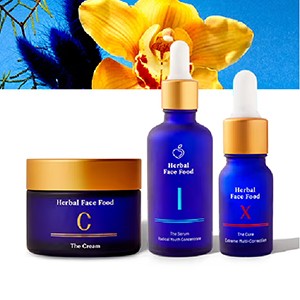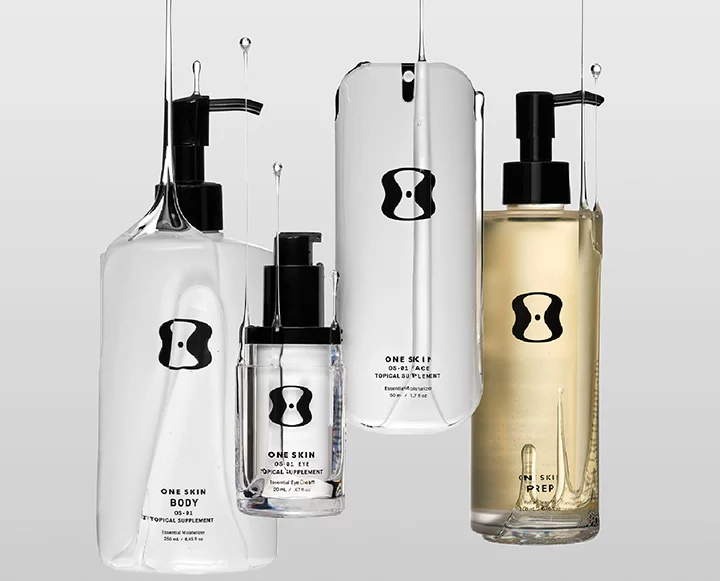If you’re a woman, it’s possible that at some point in your life you’ve been told to be less emotional, to stuff your feelings down and suck it up. According to Dr. Habib Sadeghi and Amy Stanton, emotionality is actually key to a powerful matrix of 12 qualities more women need to learn to embrace, not shun.
As co-authors of The Feminine Revolution: 21 Ways to Ignite the Power of Your Femininity for a Brighter Life and a Better World, Amy Stanton and Catherine Connors are clarifying the power and meaning of so many classically feminine traits. These feminine qualities are not blocks to power, but an integral part of the innate power women bring to the table, both in business and in life.
Stanton has paired with integrative L.A. doctor, Dr. Habib Sadeghi (who regularly treats the likes of Chris Martin and Anne Hathaway) to share this series with us about the ideas in the book. Stanton and Sadeghi will be breaking down a list of feminine traits that have traditionally been perceived as weak – starting with “being emotional” – and providing actionable steps to overcoming outdated or unhealthy ideas about femininity. According to Dr. Sadeghi, suppressing these traits can event contribute to physical ailments.
We’re thrilled to share this series on The Feminine Revolution, which will no doubt stir a bit of conversation, if not controversy. Take it to our new private Facebook group if you want to discuss in depth!
Stanton and Sadeghi’s advice includes powerful insights for men too – dealing with our emotions in good health is an issue we all need to learn to manage well. Read through the pair’s interview ahead to learn how to harness the power of our emotional sensitivity and consciously embrace emotionality in our day-to-day life…
On Feminine Consciousness How many times have we been told we’re just being sensitive or acting too emotional? Most women have been told, one way or the other, that they’re overly emotional — and not in a complimentary way.
Women and emotionality have a long history. Philosophers, political leaders, business executives and film producers have exposed and even capitalized on the emotionality of women. We have long been programmed to believe that women are more emotional beings, and that we’re too much as a result.
From The Feminine Revolution: “Emotional sensitivity is, arguably, one of the most ‘feminized’ human characteristics. Excessive emotional sensitivity was for a very long time (most of human recorded history, in fact) believed to be a physiological condition, and one unique to women. The condition of ‘hysteria,’ which was for a long time strongly (although not exclusively) associated with extreme emotional instability, was a disorder of female reproductive organs: the word ‘hysteria,’ long used to describe excessive emotional disorder, comes from the Greek word hystera, which means uterus. And even though ‘hysteria’ is no longer used in medical diagnoses, we still have strong cultural associations between female reproductive cycles and emotional sensitivity. Pregnant and menstruating women are characterized as emotionally volatile: the stereotypes of the overly sensitive pregnant woman who cries at the drop of a teacup or the dangerously moody woman raging her way through ‘shark week’ still pervade popular culture and stand-up comedy routines.”
Why do so many women suppress their emotions?
Amy: Many of us have been told one too many times that we’re too sensitive. We have been conditioned to believe that our emotions aren’t welcome in the workplace (and sometimes even outside of the workplace). Instead of learning to own and use our emotions productively, we often avoid them. We’ve trained ourselves to hold these emotions in and pretend they don’t exist. We present a strong, resilient, fearless front and have learned to believe this is the only way.
Eventually these emotions show up, however — this could be in an explosive moment where we simply can’t hold back any longer and burst into tears. Or, as Dr. Sadeghi explains, these emotions may manifest in our bodies. In reality, our emotions are our power. So learning to appreciate and embrace them, will not only make us better in our daily lives but we will also be healthier as a result.
Talk to us about supressed emotions and "pelvic floor armoring"...
Dr. Sadeghi: The pelvic floor is the network of tissues that stabilize the boney structure of the pelvis and the joints and organs it comes into contact with. Most people carry their unconscious tension in the gut.
When we suppress emotions long-term, the chronically contracted state of the gut due to stress, can suspend or freeze the pelvic floor in an unnaturally high and rigid position. This can cause many problems in the pelvic region including issues with the hip and sacroiliac joints, the function of the vagina, rectum, and urethra, and even conception if the uterus is involved.
What is empowered sensitivity?
Amy: Empowered sensitivity starts with the acknowledgement and recognition that sensitivity isn’t holding us back, that it’s actually a superpower. It’s not about taking things personally. It’s about using our senses to sense what’s happening around us, to gain a deeper understanding of our environment and everything in it — how someone is feeling, why something happened, how we can support someone, what the best course of action might be.
Our sensitivity allows us to collect information, to connect with the environment and those around us. When we own our sensitivity — and our emotionality — we can show up as a more complete version of ourselves. We can trust our instincts, recognizing that our sensitivity (in some cases, our intuition or gut instinct) will show us the way.
Empowered sensitivity is wisdom. A woman who embodies this feels more comfortable in her body — she doesn’t spend extra time overthinking, questioning her emotions — she owns them and uses them to connect to those around her and importantly, to herself.
What are the physical benefits of embracing emotionality?
Dr. Sadeghi: Learning how to recognize and express what you’re feeling in a healthy way – in real time – is the best protection against chronic stress.
Chronic stress has been implicated in hundreds of research studies as a primary factor in most major diseases. Stress insidiously tears the body down over time, weakening the immune system, making us more vulnerable to everything from colds to cancer. When you suppress your emotions, you suppress your immunity. So by expressing emotions in a healthy way you’ll be enjoying stronger immunity and helping to prevent serious illness in the future.
How should we adopt emotionality into our day-to-day life?
Dr. Sadeghi: When we fail to express our needs or feelings, we’re basically saying, I don’t matter. Adopting emotionality means understanding that you do matter very much, and so does how you feel about things.
Cultivating a healthy sense of self-esteem is important. It’s also about expressing your feelings in a clear and respectful way, even when it’s difficult, if you intend to really communicate with others. It’s always good to stop and ask yourself: What am I feeling? Why am I feeling it? What do I want others to do or understand as a result of how I feel?
Amy: It all starts with awareness. When you feel yourself starting to get emotional (happy, sad, angry, you name it), pause. Give yourself a moment to recognize where the emotion is coming from. Don’t try to hold it in — let it go. Understanding what’s causing the feeling will help you move through it in a more productive way.
Instead of beating yourself up for getting emotional, remember that your emotions make you human. They make you you. They mean you’re alive. They allow you to be seen by others and to connect with those around you. They are powerful. And these powerful emotions should be cultivated, appreciated and embraced.
What are your tips for embracing emotion?
Dr. Sadeghi: Expressing emotion requires bravery, being vulnerable enough to share. Not everyone will be receptive when you extend your love or assert yourself, but sharing feelings is about honoring the self, not being validated by others.
My book, The Clarity Cleanse: 12 Steps to Finding Renewed Energy, Spiritual Fulfillment, and Emotional Healing contains several emotional resolution techniques to help realize and release unresolved emotional issues that harm relationships and health.
What are the best tools for emotionality?
Amy: Here are three tools for fueling your emotionality, as shared in The Feminine Revolution:
+ Practice emotional reflection. Engage in active noticing of your emotional responses to stimuli. Seek out opportunities to have your emotional senses stimulated — through exposure to art and culture [music, film, books], through engagement with other people, through personal writing or other reflection — and pay attention to your emotional responses.
+ Observe your emotional responses. Use your sensitivity to increase your situational awareness, build relationships, and boost your creativity. Leverage sensitivity in engaging with others, to stay attuned to what people are really saying and how they’re really responding to each other — notice body language and social tics, watch for the emotion running beneath the surface of the interactions.
+ Remember that sharing your feelings is a cornerstone of good relationships. Use your emotional sensitivity to reach deeper levels of intimacy, to enhance shared emotional experience and to improve communication.












